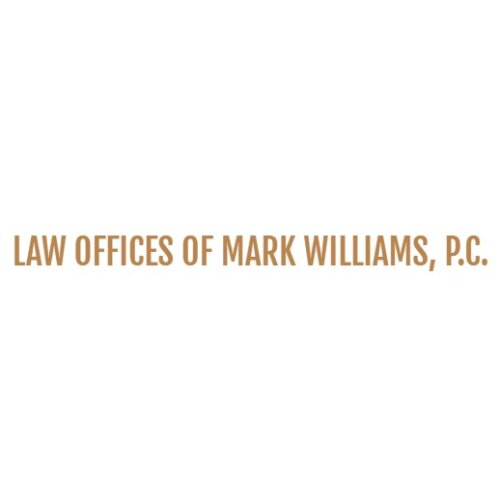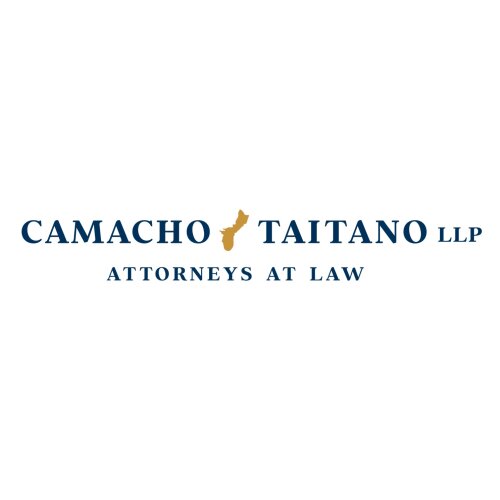Best Commercial Litigation Lawyers in Guam
Share your needs with us, get contacted by law firms.
Free. Takes 2 min.
Or refine your search by selecting a city:
List of the best lawyers in Guam
About Commercial Litigation Law in Guam
Commercial litigation in Guam refers to the legal process by which individuals and businesses resolve disputes arising from commercial and business activities. These disputes may involve contracts, partnerships, real estate, corporate governance, and other matters related to commerce. Guam, as a United States territory, follows a combination of federal and local laws when addressing commercial disagreements, which are typically handled in the Superior Court of Guam or the District Court of Guam, depending on the specifics of the case. The goal of commercial litigation is to resolve financial, contractual, and regulatory conflicts efficiently and fairly, whether through negotiation, mediation, arbitration, or court proceedings.
Why You May Need a Lawyer
There are many instances where hiring a commercial litigation attorney in Guam is beneficial. Some of the most common situations include:
- Breach of contract disputes between businesses or with individual contractors
- Disagreements over the terms, performance, or enforcement of business agreements
- Shareholder and partnership disputes, including dissolution or buyout matters
- Intellectual property conflicts, such as trademark or copyright infringement claims
- Fraud, misrepresentation, or other deceptive business practices
- Business torts, including interference with business relationships
- Real estate and lease disputes involving commercial property
- Debt collection and enforcement of judgments
- Disputes involving unfair competition or antitrust concerns
- Employment-related matters, especially those involving non-compete clauses or confidential information
A skilled lawyer can help you assess the merits of your case, navigate local rules and procedures, negotiate settlements, and advocate for your best interests in court or through alternative dispute resolution.
Local Laws Overview
Guam's legal framework for commercial litigation draws from both United States federal law and local statutes. Key aspects include:
- Guam Code Annotated - This is the primary body of local law, including commercial and contract statutes
- Rules of Civil Procedure - Guam follows procedural rules similar to those in many U.S. jurisdictions, which govern how lawsuits are filed and managed
- Business Regulation - Specific regulations apply to corporations, partnerships, LLCs, and sole proprietorships operating in Guam
- Federal Law Application - In cases involving parties from other states or countries, federal laws and the District Court of Guam may have jurisdiction
- Alternative Dispute Resolution - Guam courts often encourage mediation or arbitration before resorting to full court trials to resolve business disputes
- Limitations Periods - Guam imposes statutory deadlines for filing commercial lawsuits, typically between two and four years depending on the type of claim
- Enforcement of Judgments - Guam permits various mechanisms for enforcing court judgments, including garnishments, liens, and property levies
- Consumer Protection - There are specific protections for consumers and businesses against unfair or deceptive practices under Guam law
Frequently Asked Questions
What is commercial litigation?
Commercial litigation refers to legal disputes related to business issues, including contracts, partnerships, business torts, and regulatory compliance. It involves both negotiations and court proceedings to resolve conflicts between parties engaged in commerce.
Where are commercial litigation cases heard in Guam?
Commercial litigation cases in Guam are typically heard in the Superior Court of Guam or the District Court of Guam, depending on jurisdictional requirements such as the parties involved and the nature of the claim.
How long do I have to file a lawsuit in Guam?
The statute of limitations for most commercial disputes in Guam is between two and four years, depending on the specific type of claim. It is important to consult an attorney as soon as possible to avoid missing critical deadlines.
Can I represent myself in commercial litigation?
While individuals have the right to represent themselves, commercial litigation can be complex. Most businesses, especially corporations and LLCs, are generally required to be represented by a licensed attorney in court.
What remedies are available in commercial litigation cases?
Remedies may include monetary damages, specific performance (compelling a party to honor an agreement), injunctions to stop certain actions, and declaratory judgments clarifying legal rights.
Is mediation required before going to trial in Guam?
Many commercial disputes in Guam courts are subject to mandatory mediation or other forms of alternative dispute resolution before a case proceeds to a full trial, unless the court grants an exemption for good cause.
Can I recover attorney’s fees if I win my case?
Attorney’s fees in Guam are typically only awarded if specified by statute or if the parties' contract provides for such fees. Otherwise, each party generally pays its own legal costs.
What should I do if I am served with a lawsuit?
If you are served with legal papers, it is important to read them carefully and consult a commercial litigation attorney immediately. There are strict deadlines for responding, and failing to act can result in a default judgment against you.
How can I enforce a judgment in Guam?
Once you obtain a court judgment, enforcement options include garnishing wages or bank accounts, placing liens on property, or seeking a writ of execution to seize assets.
Are out-of-court settlements common?
Yes, many commercial litigation cases settle out of court through negotiation, mediation, or arbitration. Settlement can save time, reduce expenses, and allow the parties to maintain more control over the outcome.
Additional Resources
Individuals and businesses seeking commercial litigation assistance in Guam can benefit from the following resources:
- Superior Court of Guam - Access to court rules, filing guidelines, and case information
- District Court of Guam - Handles federal and some cross-jurisdictional commercial cases
- Guam Bar Association - Offers lawyer directories and resources for finding legal representation
- Guam Department of Revenue and Taxation - Information on business licensing and regulatory compliance
- Guam Department of Consumer Affairs - Consumer protection resources and complaint resolution services
- Legal aid organizations in Guam - Assistance for qualifying individuals and small businesses
Next Steps
If you need legal assistance with a commercial litigation matter in Guam, consider the following steps:
- Document your situation thoroughly, including contracts, correspondence, and any supporting records
- Research and contact an attorney experienced in Guam commercial litigation law for an initial consultation
- Review your legal options, likely outcomes, and potential costs with your legal counsel
- Be mindful of any legal deadlines, including statutes of limitation and court scheduling orders
- Discuss alternative dispute resolution options with your attorney, such as mediation or arbitration
- Stay informed and proactive throughout the legal process by maintaining open communication with your legal representative
Engaging with an experienced attorney from the outset can help protect your business interests and increase your chances of a successful resolution.
Lawzana helps you find the best lawyers and law firms in Guam through a curated and pre-screened list of qualified legal professionals. Our platform offers rankings and detailed profiles of attorneys and law firms, allowing you to compare based on practice areas, including Commercial Litigation, experience, and client feedback.
Each profile includes a description of the firm's areas of practice, client reviews, team members and partners, year of establishment, spoken languages, office locations, contact information, social media presence, and any published articles or resources. Most firms on our platform speak English and are experienced in both local and international legal matters.
Get a quote from top-rated law firms in Guam — quickly, securely, and without unnecessary hassle.
Disclaimer:
The information provided on this page is for general informational purposes only and does not constitute legal advice. While we strive to ensure the accuracy and relevance of the content, legal information may change over time, and interpretations of the law can vary. You should always consult with a qualified legal professional for advice specific to your situation.
We disclaim all liability for actions taken or not taken based on the content of this page. If you believe any information is incorrect or outdated, please contact us, and we will review and update it where appropriate.
Browse commercial litigation law firms by city in Guam
Refine your search by selecting a city.










